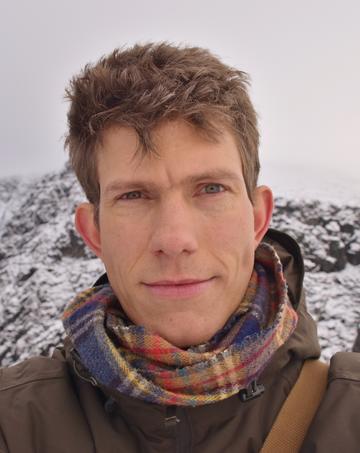OSGA Welcomes Dr Michael Rochlitz to Oxford
It was a love of music that first got Dr Michael Rochlitz interested in Russia. “My parents are both musicians,” he says. “My mum is a piano teacher and it was through playing Russian composers like Rachmaninov and Mussorgsky that it started.” His interest was also sparked by watching German journalist Gerd Ruge’s 1990s travel documentaries about Russia with his father. When he began his undergraduate degree at Sciences Po Paris, he had the option of learning Arabic or Russian – he picked Russian and this decision shaped his academic future.
Dr Rochlitz’s language learning journey took him to language schools in Vilnius, St Petersburg and Kaliningrad. “You get into this Russian context and it captures you,” he says. A 2006 internship working for the UN in Simferopol in Crimea cemented his knowledge of the Russian language. “I was living with a Russian babushka, who was cooking for me and we talked while we watched television in the evening. Most of the people in the UN office also only spoke Russian.”
After completing his MSc thesis in Development Economics at SOAS on Putin’s industrial policy, Dr Rochlitz went to Moscow to look for work experience in 2008. “But this was the start of the financial crisis,” he says. “It was impossible to find a job because everything was closing down. So I thought again about a PhD.” That was when he spotted an advert in The Economist for a PhD opportunity at IMT Lucca. “I got the last scholarship – those three years were the most beautiful of my life!” He immersed himself in Russian research and in 2012-13 spent almost a whole year as a visiting lecturer in Yekaterinburg in the Ural Mountains. His PhD explored corporate raiding attacks by the secret services and other state organisations and the expropriation of firms, exposing Putin’s system of divide and rule that continues to this day.

After his PhD, Dr Rochlitz was asked to join a team in Moscow as a post-doctoral researcher and then became Assistant Professor at the Higher School of Economics. “It was a very dynamic place at the time,” he recalls, “Fast-growing, the best institution to study political economy in Russia, cooperating with Colombia University in the US.” But around 2017, doing research on Putin’s Russia inside Russia became increasingly problematic so he took the opportunity of a research post in Munich with a Russian colleague before taking up a Professorship of Institutional Economics at the University of Bremen.
Dr Rochlitz has remained an Associate Fellow at the International Center for the Study of Institutions and Development (ICSID) at the Higher School of Economics and has continued his work exploring property rights, corporate raiding attacks and Putin’s tactic of using collective memories of the chaos in the 1990s. He is also exploring how authoritarian powers, such as Russia and China, are using AI to both consolidate their hold on power and also compete in the global economy.
At OSGA, Dr Rochlitz will be teaching a class on Russia’s economic transformation from the late 1980s, through the chaos of the 1990s to the country’s evolution under Putin. “I will focus a lot on the 1990s as it’s the period during which Putin and his people formed their views… it’s very important to understand the 1990s to understand what’s going on in Russia today.” He’ll also be teaching Quantitative Methods classes in statistics and applied statistics with R to study political economy questions.
Dr Rochlitz is still closely connected to the colleagues he worked with in Moscow through ICSID. Although only two of the original team are still left in Russia, and Covid and the war in Ukraine threatened to halt the project’s work, the team were able to meet again at a conference in Astana, Kazakhstan in 2023. “Kazakhstan is a very interesting place at the moment,” says Dr Rochlitz “The pressure from Russia is off because Russian troops are in Ukraine and Kazakhstan is trying to decide where to go. All of a sudden the country has some breathing space.” They plan to hold an even bigger conference and summer school next year with three Kazakh universities along with students from the University of Bremen. Dr Rochlitz hopes to bring OSGA students into this relationship and facilitate an exchange.
The love of music that started him on his academic path is one of the reasons Dr Rochlitz is particularly happy about moving to Oxford. “What I like about the UK university system is the quality of amateur music in choirs and orchestras,” he says, looking forward to joining a choir in the city. He’s also curious to discover the unique traditions of Oxford University, which will be very different to the 50-year-old University of Bremen. We hope that Oxford’s dreaming spires can compete with the beautiful rooftops of Lucca and the dramatic landscape of the Urals and look forward to welcoming Dr Rochlitz to OSGA in September.
-----------------------------------------
Dr Michael Rochlitz will be joining OSGA in September 2023 as Associate Professor in Economies of Russia, Eastern Europe and Eurasia.
You can view Dr Rochlitz’s publications here.





